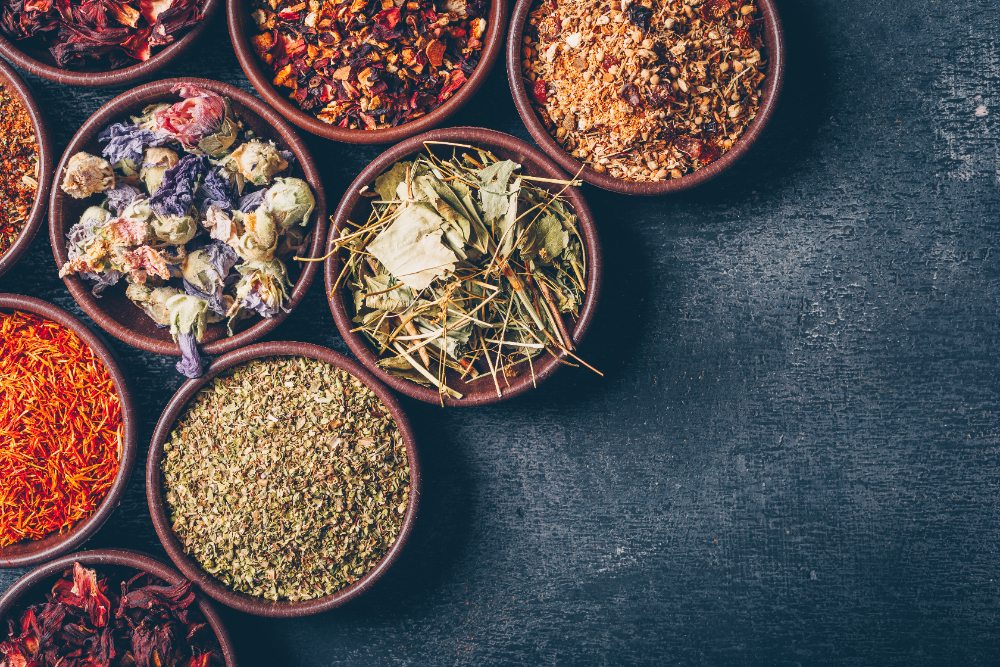
Ayurveda, India’s ancient science of holistic health, takes a deeply personalised approach to women’s well-being, recognising the individual needs of every woman through the concept of Prakriti (constitution). A woman undergoes several changes throughout her life starting from puberty to menopause. Ayurveda emphasises the interconnectedness of the body, mind, and spirit, addressing the unique transitions women experience at different stages of life—menstruation, pregnancy and postpartum, and menopause. Dr Rini Vohra Shrivastava, Scientific Advisor, Maharishi Ayurveda, South Delhi shared about some of the herbs and ayurvedic routines that you can follow to achieve hormonal balance.
Here are the ayurvedic routines and herbs that can help you achieve hormonal balance:
Dr Rini Vohra highlighted that Ayurveda views Rajas (menstrual cycle) to be a vital reflection of a woman's state of health. She recommends a healthy diet to maintain balance during menstruation. Soups, stews and other warm, easy-to-digest foods help strengthen Agni and help relieve these symptoms. She also suggests herbal teas, such as ajwain or ginger tea, to improve blood flow and alleviate discomfort. One can also try practising Abhyanga (self-massage) with warm sesame oil to stimulate circulation and ease menstrual pain. Ayurvedic herbs, such as Shatavari, which supports hormonal health, and Ashoka, revered for its role in strengthening uterine health, offer natural and effective relief.

Pregnancy is viewed as a sacred period in Ayurveda. At this time both physical and emotional nourishment is required for the mother and the developing baby. According to Dr Rini, a diet consisting of warm and wholesome foods such as ghee, milk and whole grains is important. Additionally, practising gentle yoga and meditation is of great help in maintaining emotional calmness.
Dr Rini highlighted that postpartum care is seen as a time for recovery, focusing on warmth and nourishment to restore vitality after childbirth. She recommends light, easily digestible meals like broths and soups to support digestion and enhance lactation, ensuring the mother’s body regains its strength.
According to Dr Rini, herbs like Bala and Shatarivari are useful in balancing the hormones and increasing milk secretion, whereas Dashmoola helps in the recovery of the uterus. Shatarivari is referred to as the ‘queen of herbs’ for women as it facilitates a woman’s lactation and promotes reproduction and emotional health. Additionally, Ashoka promotes good health of the uterus; Guduchi enhances immunity demonstrating the essence of Ayurvedic practice in supporting the mind and body wellness in the period after childbirth.
Don't Miss: How Does Menopause Affect Your Oral Health: Expert Guides Through

For women, menopause is a transformative time. Marked by a transition from Pitta to Vata dominance, this natural process changes during its progression, such as hot flashes, changes in mood, as well as vaginal dryness. According to Rini, such effects are treated naturally by Ayurveda through regulations of diet, changing lifestyle, and herbal support. Cooling and hydrating foods such as coconut, cucumber, and dairy calm Pitta’s heat, while herbs like Shatavari and Triphala have balancing effects on various hormones and detoxify the body. She recommends yoga, pranayama (breathing exercises), and meditation to feel more stable and clear-headed emotionally.
Dr Rini highlighted that hormonal health and emotional well-being are deeply connected, and Ayurveda emphasises that to maintain a balance, stress needs to be managed. Elevated stress levels might worsen Vata and Pitta doshas, leading to irregular cycles, exhaustion, and mood fluctuations. She recommends stress management practices such as Transcendental Meditation, which soothes the mind and lowers cortisol levels, along with Nadi Shodhana (alternate nostril breathing), which helps balance the doshas, are crucial. Additionally, emotional resilience can also be greatly increased by engaging in creative activities or enjoying time in nature.

Don't Miss: Late Periods? 4 Reasons As Per Doctor
Follow these ayurvedic practices to achieve hormonal balance and well-being.
Image Courtesy: Freepik
Also watch this video
Herzindagi video
Our aim is to provide accurate, safe and expert verified information through our articles and social media handles. The remedies, advice and tips mentioned here are for general information only. Please consult your expert before trying any kind of health, beauty, life hacks or astrology related tips. For any feedback or complaint, contact us at [email protected].